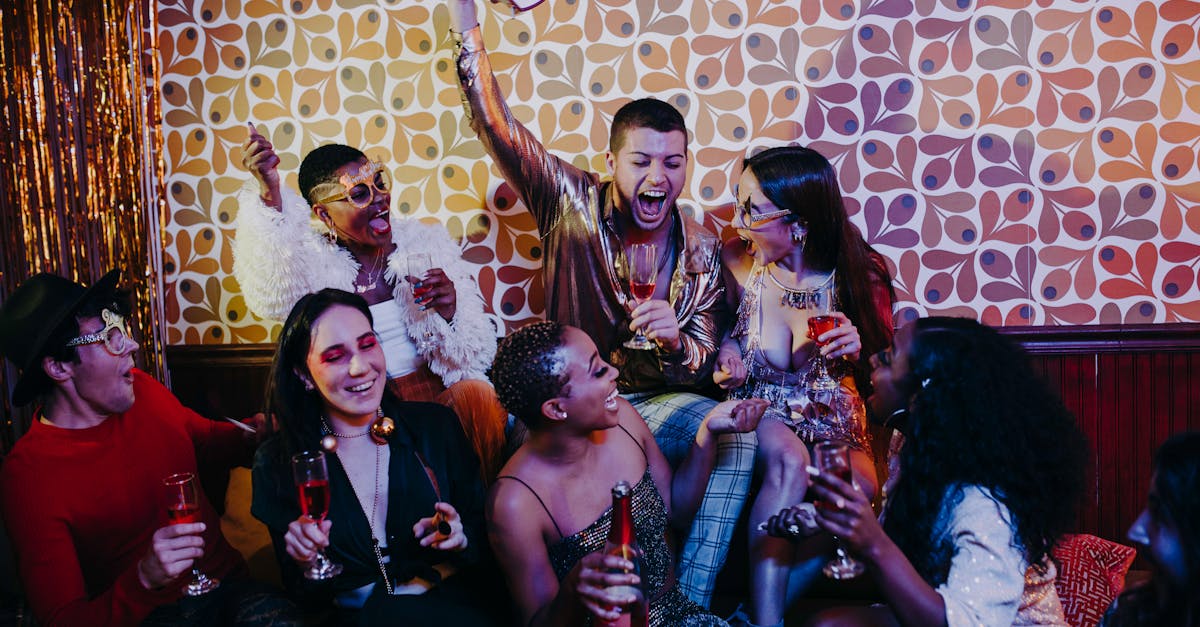Pop Culture Convergence 2024 Insights
Introduction
As 2024 unfolds, the phenomenon of pop culture convergence continues to reshape global entertainment landscapes. This fusion sees disparate media forms—film, television, music, gaming, and social media—coming together in unprecedented ways. The lines between these mediums blur daily, driven by technological advances and shifting consumer expectations. Accessibility and diversity have become the watchwords in an era where audiences demand more inclusion and representation. It’s not just about entertainment; these trends mirror broader societal undercurrents. With each passing year, pop culture takes on greater significance, filling the dual role of reflector and influencer of societal norms.
Advertisement
The Digital Age and Seamless Integration
The digital age propels pop culture convergence, streamlining the integration of media forms like never before. Streaming platforms such as Netflix, Spotify, and YouTube offer multifaceted content from varied genres, breaking down traditional consumption barriers. Audiences engage with stories or characters across platforms, enhancing the depth and richness of the experience. From a single device, consumers can watch a series, catch a behind-the-scenes video, and dive into the music album or game spinoff, creating seamless entertainment. This integration emphasizes story-driven content that resonates, allowing creators to reach broader and more diverse audiences than ever before.
Advertisement
The Role of Social Media and Viral Movements
Social media plays a pivotal role in pop culture convergence through virality and immediate interaction. Platforms like Instagram, Twitter, and TikTok transform passive consumption into active engagement. Hashtags, memes, and trending topics weave into larger cultural narratives, empowering users to become creators themselves. Viral challenges and fan-driven campaigns ignite new trends, updating or extending the lifecycle of pop culture artifacts. This dynamic fosters a sense of community and belonging, with fans rallying around shared interests and collective moments. As a result, culture moves at an accelerated pace, reflecting the rapidity of these online interactions.
Advertisement
The Return of Retro and Nostalgia
Nostalgia influences pop culture convergence in 2024, with retro elements resurfacing across various media forms. From fashion inspired by the '90s to remakes of classic TV shows and films, the yearning for the past grows palpable. This nostalgia acts as a bridge, connecting generations and renewing interest in old classics by revamping them for modern tastes. Streaming services bring back forgotten gems, while music collaborations see old-school artists joining with new influencers. The convergence allows individuals to experience shared historical reflections while applauding innovation, reminding us of the timeless appeal of nostalgia.
Advertisement
Inclusivity and Representation
Celebrating diversity and inclusivity marks a significant trend in pop culture convergence. Creators and platforms are increasingly aware of the demand for inclusive representation, driving changes from boardrooms to screenplays. Diverse voices across gender, race, and sexuality bring authenticity to stories that resonate globally. This inclusivity extends beyond casting to behind-the-camera roles, ensuring varied narratives reflect a broader human experience. Interactive media formats allow audiences to shape narratives, increasing engagement and ensuring stories reflect their realities. Such advancements enrich pop culture, promoting empathy and understanding across communities.
Advertisement
The Rise of Multiverse Storytelling
Multiverse storytelling captures the imagination of audiences, drawing from the flexibility of pop culture convergence. Marvel and DC franchises set the stage with expansive universes crossing comics, films, and series. Multiverses present limitless narrative possibilities, encouraging audiences to explore thematic complexities and character developments. By embracing this model, creators can deliver intricate storylines that interconnect and engage audiences across different platforms. The storytelling versatility transforms fans into detectives, piecing together elaborate plotlines while expanding the cultural tapestry. Such narratives foster a sense of wonder and limitless potential, driving engagement across communities.
Advertisement
Tech Innovations and Future Trends
Technological advancements underpin the potential of pop culture convergence moving forward. Virtual reality (VR) and augmented reality (AR) innovate traditional viewing experiences, creating immersive environments where audiences live the story. AI-driven content recommendation systems and personalized streams align with user preferences, enriching cultural experiences. Technologies decrease barriers, helping individuals from different backgrounds access and enjoy shared cultural moments. Bold tech-driven experiments hint at future entertainment landscapes potential, where VR concerts or AI-directed films might become commonplace. The continuous interplay between technology and creativity will shape the next evolution of pop culture.
Advertisement
Cultural and Societal Impacts
Convergence of pop culture extends beyond entertainment, impacting societal values and norms. It promotes a global sense of interconnectedness, bringing together diverse perspectives under a shared cultural umbrella. Cross-cultural exchanges embolden empathy, encouraging understanding and appreciation of varied traditions and viewpoints. By challenging traditional narratives and stereotypes, pop culture acts as a catalyst for progressive change. These media forms shape generational identity, reflecting and challenging cultural assumptions, while providing the groundwork for meaningful discourse. Ultimately, pop culture convergence opens pathways for cultural healing and shared future identity creation.
Advertisement
Challenges and Ethical Considerations
While pop culture convergence offers opportunities for innovation, it also presents challenges and ethical dilemmas. The deluge of content raises questions about originality, copyright, and cultural appropriation. Monetization practices can result in homogenization or marginalization of niche content. Balancing freedom of expression with ethical storytelling remains a complex issue. Additionally, navigating digital rights management and privacy concerns against an increasingly interconnected backdrop requires careful negotiation. Awareness and proactive engagement are crucial to address these challenges, ensuring that convergence continues to thrive while upholding cultural integrity.
Advertisement
Conclusion
Pop culture convergence in 2024 heralds a new era where creativity, technology, and inclusivity seamlessly interconnect to shape entertainment and society. From immersive storytelling to revitalized nostalgia, convergence enriches lives by offering diverse narrative experiences. As we navigate these evolving landscapes, understanding and critical engagement promise a brighter, interconnected cultural future. Promoting ethical practices and inclusivity will ensure this convergence remains a reflective and transformative force. In a rapidly changing world, pop culture convergence continues to offer new horizons, crafted for an ever-curious, connected global audience.
Advertisement





